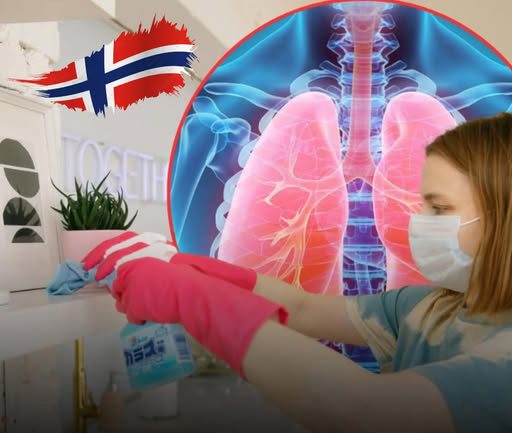20-Year Study Warns: Lung Damage from Cleaning Chemicals Comparable to Long-Term Smoking

A long-term study has revealed a disturbing truth: individuals who regularly engage in cleaning face lung damage akin to that of long-term smokers. The 20-year research, conducted by the University of Bergen and published in the American Journal of Respiratory and Critical Care Medicine, followed over 6,000 people and reached a shocking conclusion.
Specifically, women who clean—whether at home or professionally—experienced a lung function decline similar to smoking nearly 20 pack-years (a pack a day for 20 years). The underlying issue is that the chemicals in cleaning sprays cause chronic airway irritation, leading to lasting respiratory harm.
Key lung health metrics, such as forced expiratory volume in one second (FEV1) and forced vital capacity (FVC), dropped faster in cleaners than non-cleaners, with a higher incidence of asthma among women. Interestingly, the study found no similar effect among men.
Researchers strongly suggest skipping harsh chemicals for safer options like microfiber cloths and water. They are urging for tighter regulations on cleaning products to curb inhalation risks and safeguard long-term lung health. This finding serves as a critical warning about the silent danger lurking in our everyday cleaning cabinets.











